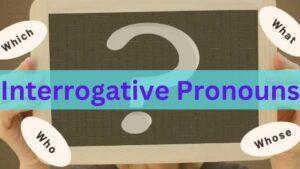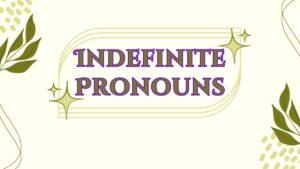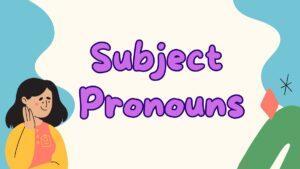Table of Contents
Verb forms are significant because they allow us to convey actions in a variety of ways. For example, we can use the present form to describe an action that is currently taking place, the simple past form to represent a past action, and the present participle form to indicate an ongoing action. The past participle form can also be used to produce the perfect tenses, which represent acts that have been accomplished or actions that have been ongoing for a given time.
Verb Forms
Verb Form play a very important role in sentence formation in English. As we can’t imagine living without water, we can’t imagine a sentence without a verb. In English grammar, Verb plays an important key role in sentence formation. A verb is a part of speech that is used to tell an action done by any individual.
While the formation of sentences of different tenses, we will use different forms of verbs. In this article, we will understand different types of verb forms with their examples and provide a list of different forms of verbs.
Three Forms of Verbs V1 V2 V3
Three Forms of Verbs are infinitive, present participle, and past participle are the three primary forms of verbs in English grammar.
1. The infinitive is the most fundamental form of the verb. It is usually used in conjunction with the verb “to.” The infinitive of the verb “to walk,” for example, is “to walk”.
2. The present participle is generated by appending “ing” to the end of the verb’s infinitive form. The present participle of the verb “to walk,” for example, is “walking.”
3. The past participle is generated by appending “ed” or “d” to the end of the verb’s infinitive form. The past participle of an irregular verb is formed differently. For example, the past participle of the verb “to walk” is “walked”.
Verb Forms v1 v2 v3
The verb forms v1,v2,v3 are a way to express context that describes the specific time of the action performed by the individual. As we know Verb is the fundamental unit of sentence formation. While the formation of sentences of different times, we need different forms of verbs.
There are a total of five forms of verbs. These are -the root verb or basic form of the verb, third person singular present form of the verb, present participle or ‘ing’ form, and simple past and past participle.
Root verbs
Root verbs are the basic or original form verbs without any modification or changes. Different forms are formed from the root verbs. In some cases, root verbs are used as simple present forms of verbs. Let’s go through some verb forms examples for better understanding.
Examples of Root verbs
•I teach English ( Root Verb- Teach)
•I am a student ( Root Verb – Be verb -am )
In the above examples, teach, and am (be- verb) are the original or root verbs.
Verb Forms v1 v2 v3- Third Person Singular Present form of the Verb
The third-person singular present form is formed by the addition of a ‘ s/es‘ at the end of the basic form of verbs. The third person singular present form of the verb is used to express simple present tense. This verb form is known as V5 or fifth form of Verb in English grammar.
Verb Forms Examples of Third Person Singular Present Form
•She loves to play badminton
•Ram teaches Mathematics for competitive examinations.
In the above examples loves, and teaches are the third person singular present form.
3 Forms of Verb- Present Participle Form
A present participle is that form of a verb that ends in ‘ -ing ‘. [Present form +ing]. This is also referred to as V4 or the fourth form of Verb.
Example-Reading, Dancing, etc. A participle is a double part of speech because a verb and an adjective are combined.
Verb Forms Examples of present participle form
•I am sleeping.
• They are playing cricket.
| Root form of Verb | present participle form |
| Cry | Crying |
| Dance | Dancing |
| Read | Reading |
| Laugh | Laughing |
| Start | Starting |
| Watch | Watching |
3 Forms of Verb- Past Form
The past form of the verb is used to represent the action that took place in the past by the ‘doer’. The past form of the verb is formed by the addition of ‘d/ed’ at the end of the basic form of the verb or sometimes formed by changing the spelling of the root form.
Examples of Past verb forms
•My brother lived in Delhi.
•I was ill last week.
| Root form of Verb | Past Form |
| Agree | Agreed |
| Buy | Bought |
| Start | Started |
| Play | Played |
| see | saw |
| Watch | Watched |
| Eat | Ate |
3 forms of verb- Past Participle Form
The past participle form of the verb is used to represent perfect tense. The formation of past participle form is different in regular verbs and irregular verbs. Let’s go through the examples of past participle forms of both regular and irregular verbs for better understanding.
Examples of Past participle verb forms
Regular verbs – The spellings of verbs are the same in both Past form and Past participle form
| Root form of Verb |
Past form |
past participle form |
| Think | Thought | Thought |
| Cut | Cut | Cut |
| Put | Put | Put |
| Draw | Drew | Drew |
| Sell | Sold | Sold |
Irregular verbs – The spellings of verbs are different in both Past form and Past participle form.
| Root form of Verb |
Past form |
past participle form |
| Sink | sank | Sunk |
| Speake | Spoke | Spoken |
| Ring | Rang | Rung |
| Come | Came | Come |
Verb Forms V1 V2 V3 List
Here we provide a list of present, past, and past participle forms of some important verbs, which helps students to memorize these verb forms very easily.
1) Present form of the verb ( V1 )
2) past form of the verb (V2)
3) Past participle form of the verb (V3)
Let’s understand with some examples of verb forms.
| The basic form of the verb | The present form of the verb ( V¹ ) | The past form of the verb (V²) | Past participle form of the verb (V³) |
| Be | Be | was, were | been |
| See | See | Saw | Seen |
| Fly | Fly | Flew | Flown |
| Become | Become | Became | Become |
| Rise | Rise | Rose | Risen |
| Dig | Dig | Dug | Dug |
| Eat | Eat | Ate | Eaten |
| Go | Go | Went | Gone |
| Swim | Swim | Swam | Swum |
| Feel | Feel | Felt | Felt |
| Drive | Drive | Drove | Driven |
Non-Changing Verb Forms
Verbs modify to show when the action happens by adding a suffix to the base verb. However, certain verbs are utilized in their primary or root form. These verbs stay unchanged in both the Simple Past and Past Participles form. Check the list of these verb forms below.
| V1
Present (Root Verb) |
V2
Simple Past |
V3
Past Participles |
| Bet | Bet | Bet |
| Hit | Hit | Hit |
| Cost | Cost | Cost |
| Put | Put | Put |
| Hurt | Hurt | Hurt |
| Hit | Hit | Hit |
| Let | Let | Let |
| Put | Put | Put |
| Quit | Quit | Quit |
| Set | Set | Set |
| Shut | Shut | Shut |
| Rain | Rain | Rain |
| Upset | Upset | Upset |
| Wed | Wed | Wed |
| Fit | Fit | Fit |
| Broadcast | Broadcast | Broadcast |
| Burst | Burst | Burst |
Verb Forms Exercise
Fill in the blanks with appropriate forms of verbs
1.________________ , our freedom is in danger. [Arise / Rise / Raise ]
2. During rainy season this stream was________________ [overflowed / overflow /overflown ]
3. When he _____________ to reality , all had been lost [ woke /awake /awoke ]
4. India is___ in the North by the mountains.[ bound / bounded /binding ]
5. These lawns _______with velvet grass [ are laid / are lain / were lain ]
6. Nobody could have _______ future correctly [ forecast / forecast / forecasted ]
7. No one is allowed to ___________ the trees in the forest. {fall /fell / befell ]
8. I think she _________ the clock this week [ wounded / wind / wound ]
| Related Post | |
| Auxiliary Verbs | Transitive and Intransitive Verbs |
| Irregular Verbs | Modal Verbs |


 Interrogative Pronoun - Definition, Exam...
Interrogative Pronoun - Definition, Exam...
 Indefinite Pronouns: Definition, Example...
Indefinite Pronouns: Definition, Example...
 Subject Pronouns: Definition, Examples a...
Subject Pronouns: Definition, Examples a...












